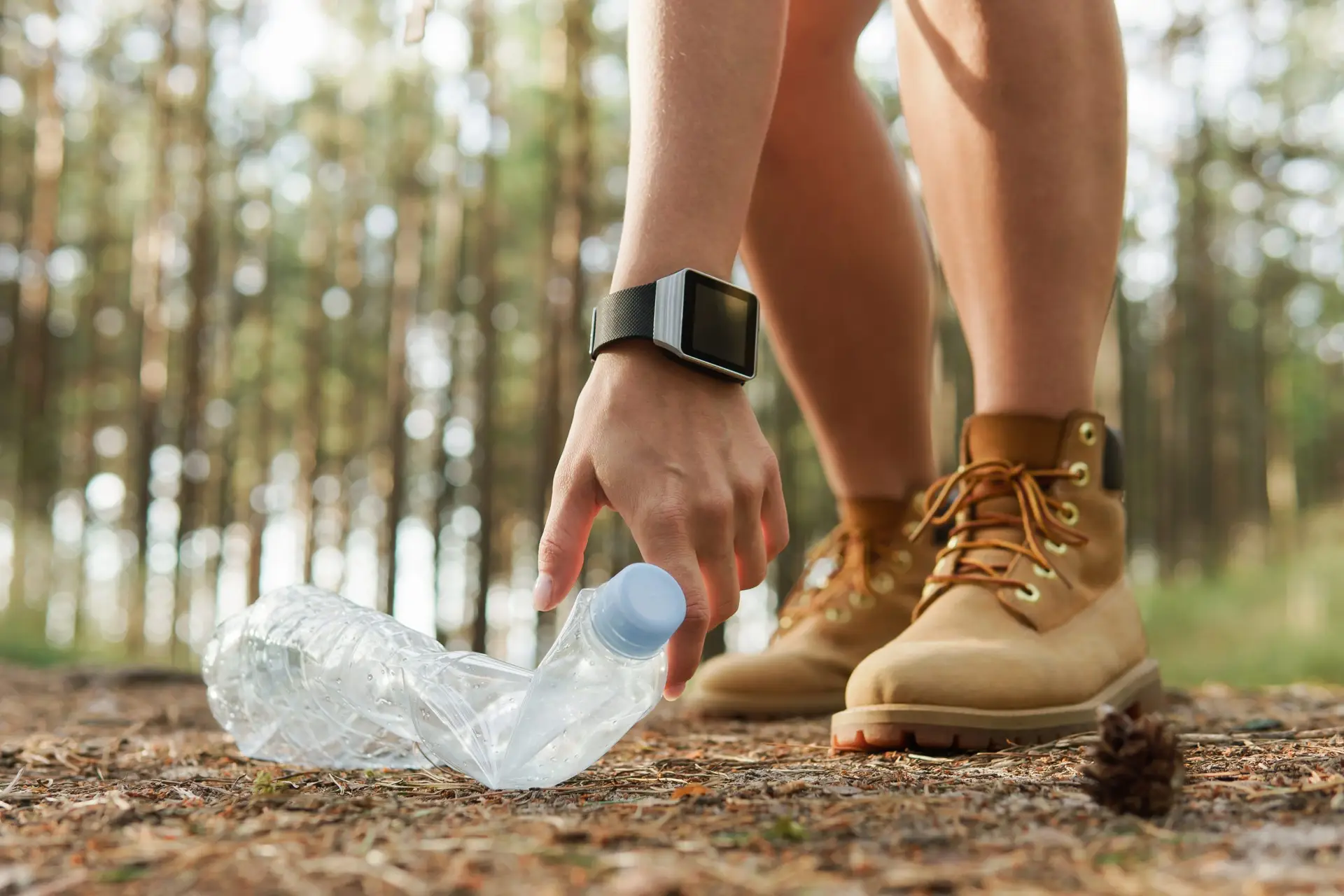I love hiking with my family. Many of my favorite memories come from days spent wandering the Wasatch mountain trails with my mom, the mountain air, and my sister’s dog, Luna. Getting outside and feeling the fresh forest breeze on your face is the perfect way to wake up to the world around you. Hiking also gets your muscles pumping and encourages kids to develop a love of the great outdoors—away from mobile phones. What’s not to love?
Enjoying the sanctity of nature is the best part of hiking, and few things ruin that enjoyment more than dirty or unsafe trails. As hikers and visitors to Mother Nature’s home, it’s our responsibility to make sure that the trails we traverse are safe and clean.
Without further ado, here are Troomi’s five tips to keep hiking trails safe and beautiful.
1. Don’t Leave the Trail
Hiking is fun, but strenuous. When you’ve spent hours hiking along switchbacks, it’s tempting to ignore the long winding turns in favor of off-trail shortcuts. This might make things easier for you, but it makes life a bit more difficult for the plants and animals that traverse the same trails.
According to the National Parks Service, “going off trail can damage or kill certain plant or animal species, and can hurt the ecosystems that surround the trail.”
One of the best ways to maintain a trail’s natural beauty is to let nature do its thing, away from human interference. This might be difficult to remember, especially for kids. Chances are high that a cool rock or interestingly shaped bush is enough to inspire kiddos to hop off the trail and explore. While it’s good to encourage a child’s natural curiosity, remind your kids to be curious with their eyes—not their hands.
2. Leave No Trace
When I was a Boy Scout, I learned a whole host of hiking etiquette rules that I still follow to this day. One of these rules was “Leave No Trace.” Leave No Trace is pretty simple: it means to leave nature exactly how it was when you arrived, effectively “leaving no trace” that you were ever there.
Leave No Trace asks hikers to minimize campfire impacts and respect wildlife, in addition to leaving rocks, plants, and other hiking finds where they were found. Your kids may find a cool flower and want to take it home with them, but remind them of Leave No Trace. You never know—that plant could be an important part of an animal’s diet.
This rule also applies to trash. If you brought it, pack it out with you. Next time you’re on a hike and eat a delicious granola bar or baggie of homemade trail mix, remember to keep the empty wrappers with you until you find an appropriate place to dispose of them.
3. Carry a Trash Bag with You
Not everyone is going to be as educated as you are on Leave No Trace. Chances are you’ll see some ugly plastic wrappers or empty cans littering the trail—especially if it’s a popular one. To help maintain the natural cleanliness of the trail, pick up any trash you see. It’s not your mess, but Mother Earth surely appreciates you picking it up regardless.
If you’re hiking with kids, try turning trash collecting into a game! Give each kid a trash bag and encourage them to pick up as much waste as they can. Whoever collects the most garbage by the end of the hike wins.
4. Move Any Natural Litter Off the Trail
Nature is always changing, and branches or stray rocks are likely to fall onto hiking trails from time to time. The majority of the trail maintenance I’ve done consisted of removing these natural roadblocks and setting them gently to the side of the trail. It’s easy to clean up natural litter with a simple toss or flick of a hiking pole.
Removing natural litter is more impactful than you might think. In addition to keeping trails pristine, it protects hikers and trail runners from tripping on objects they don’t see. Safety is the most important part of hiking. Remind your kids to keep an eye on where they step, and encourage them to pick up any natural litter they see.
If there is a large log or boulder blocking the trail that looks too big to move, don’t strain yourself! Instead, report it to the trail’s authorities. If you’re in a United States National Forest or National Park, a ranger station is your best bet for a rapid response. Otherwise, a quick search on your Troomi phone’s KidSmart Browser will let you know who to contact.
5. Volunteer!
If you live in an area with a lot of hiking trails, chances are high that there are clubs or organizations which hold regular trail cleaning service projects. These groups are always looking for volunteers, and volunteering is a great way to maintain clean trails, make new friends, and learn to love the land we live on. Plus, volunteering can help you teach your kiddos about the importance of giving service.
Don’t Hold Yourself Back from Hiking
Hiking is one of the most pleasurable activities in life. It’s relaxing, meditative, and encourages getting in touch with nature in a way that isn’t possible from your home. So next time you’re tempted to go on a hike, don’t hold yourself back. Get out there and have fun—but don’t forget to follow these rules to ensure that your local hiking trails remain clean and crisp.
And next time you go hiking, bring your kids and their Troomi smartphone along with you! Troomi phones with the Discover Plan feature an app called AllTrails, a stupendous app that educates hikers on popular trails in their area. Reviews from previous hikers inform you of trail conditions, and prepare potential explorers for any roadblocks or danger they may encounter along the way.
So what are you waiting for? Get out there and start hiking!

